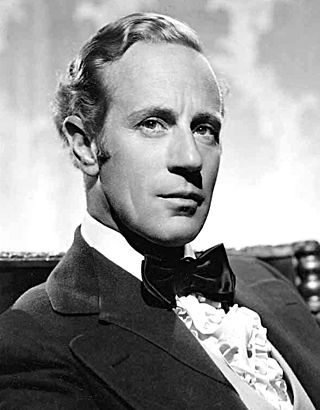
Leslie Howard Steiner was an English actor, director, producer and writer. He wrote many stories and articles for The New York Times, The New Yorker, and Vanity Fair and was one of the biggest box-office draws and movie idols of the 1930s.
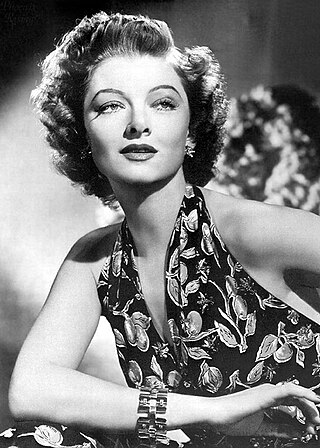
Myrna Loy was an American film, television and stage actress. As a performer, she was known for her ability to adapt to her screen partner's acting style.

Ann Harding was an American theatre, motion picture, radio, and television actress. Harding was a regular on Broadway and on tour in the 1920s. In the 1930s Harding, was one of the first actresses to gain fame in the new medium of "talking pictures," and she was nominated for the Academy Award for Best Actress in 1931 for her work in Holiday.
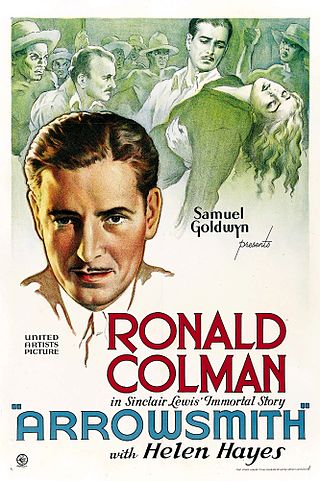
Arrowsmith is a 1931 American pre-Code drama film directed by John Ford and starring Ronald Colman, Helen Hayes, Richard Bennett, and Myrna Loy. It was adapted from Sinclair Lewis's 1925 novel Arrowsmith by Sidney Howard, departing substantially from the book regarding Arrowsmith's womanizing and other key plot elements. The pre-Code film received four Oscar nominations, including the Academy Award for Best Picture, Best Writing, Adaptation (Howard), Best Cinematography, and Best Art Direction.

Manhattan Melodrama is a 1934 American pre-Code crime drama film, produced by MGM, directed by W. S. Van Dyke, and starring Clark Gable, William Powell, and Myrna Loy. The movie also provided one of Mickey Rooney's earliest film roles. The film is based on a story by Arthur Caesar, who won the Academy Award for Best Original Story. It was also the first of Myrna Loy and William Powell's fourteen screen pairings.
Vanity Fair is a 1932 American pre-Code drama film directed by Chester M. Franklin and starring Myrna Loy, Conway Tearle and Anthony Bushell. The film is modernized adaptation of William Makepeace Thackeray's 1848 novel of the same name with the original Regency-era story reset in Twentieth Century Britain. Three years later Thackeray's novel was adapted again as Becky Sharp, the first three-strip technicolor film.
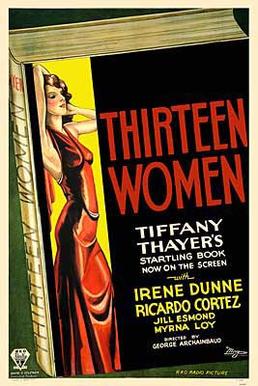
Thirteen Women is a 1932 American pre-Code psychological thriller film, produced by David O. Selznick and directed by George Archainbaud. It stars Myrna Loy, Irene Dunne and Ricardo Cortez. The film is based on the 1930 bestselling novel of the same name by Tiffany Thayer and was adapted for the screen by Bartlett Cormack and Samuel Ornitz.
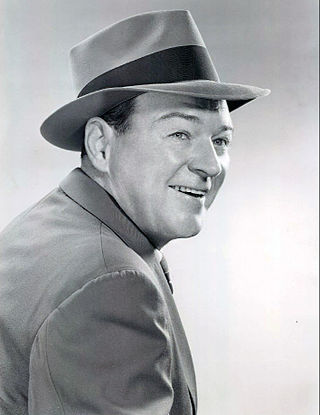
William Dennis Gargan was an American film, television and radio actor. He was the 5th recipient of the Screen Actors Guild Life Achievement Award in 1967, and in 1941, was nominated for the Academy Award for Best Supporting Actor for his role as Joe in They Knew What They Wanted. He acted in decades of movies including parts in Follow the Leader, Rain, Night Flight, Three Sons, Isle of Destiny and many others. The role he was best known for was that of a private detective Martin Kane in the 1949–1952 radio-television series Martin Kane, Private Eye. In television, he was also in 39 episodes of The New Adventures of Martin Kane.
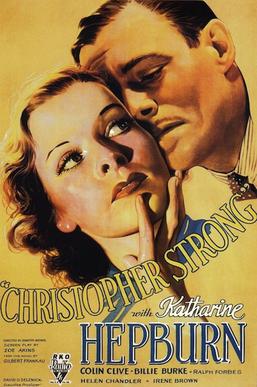
Christopher Strong is a 1933 American pre-Code romantic drama film produced by RKO and directed by Dorothy Arzner. It is a tale of illicit love among the English aristocracy and stars Colin Clive and Katharine Hepburn. The screenplay by Zoë Akins is an adaptation of the 1932 British novel Christopher Strong by Gilbert Frankau.

The Prizefighter and the Lady is a 1933 pre-Code Metro-Goldwyn-Mayer romance film directed by Howard Hawks and W. S. Van Dyke starring Myrna Loy and the professional boxers Max Baer, Primo Carnera, and Jack Dempsey. The film was adapted for the screen by John Lee Mahin and John Meehan from a story by Frances Marion. Marion was nominated for an Academy Award for Best Writing, Original Story.
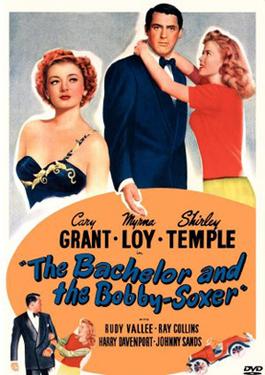
The Bachelor and the Bobby-Soxer is a 1947 American screwball romantic comedy-drama film directed by Irving Reis and written by Sidney Sheldon. The film stars Cary Grant, Myrna Loy and Shirley Temple in a story about a teenager's crush on an older man.
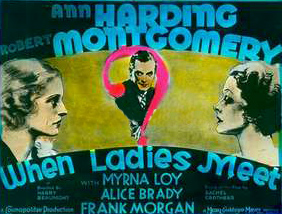
When Ladies Meet is a 1933 American pre-Code comedy film directed by Harry Beaumont and starring Ann Harding, Myrna Loy, Robert Montgomery, Alice Brady, and Frank Morgan. The film is the first adaptation of the 1932 Rachel Crothers play of the same name. It was nominated for an Academy Award for Best Art Direction by Cedric Gibbons.

When Ladies Meet is a 1941 American romantic comedy film directed by Robert Z. Leonard and starring Joan Crawford, Robert Taylor, Greer Garson, Herbert Marshall and Spring Byington. The screenplay by S.K. Lauren and Anita Loos was based upon a 1932 play by Rachel Crothers. Made by Metro-Goldwyn-Mayer, director Leonard also coproduced along with Orville O. Dull. The film was a remake of the 1933 pre-Code film of the same name, which had starred Ann Harding, Myrna Loy, Robert Montgomery and Frank Morgan in the roles played by Garson, Crawford, Taylor and Marshall.
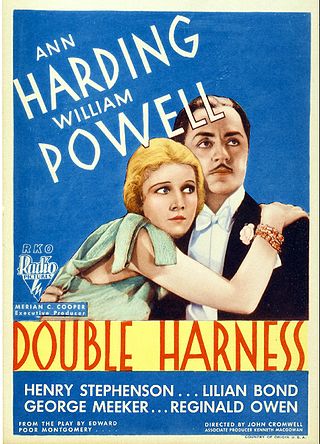
Double Harness (1933) is an American pre-Code film starring Ann Harding and William Powell. It was based on the play of the same name by Edward Poor Montgomery. A young woman maneuvers a lazy playboy into marrying her.

Third Finger, Left Hand is a 1940 American romantic comedy film directed by Robert Z. Leonard and starring Myrna Loy, Melvyn Douglas and Raymond Walburn. The screenplay concerns a woman who pretends to be married to fend off would-be suitors and jealous wives, then has to live with her deception when she meets an artist who pretends to be her husband.

Hardboiled Rose is a 1929 American sound part-talkie romantic drama film directed by F. Harmon Weight and released by Warner Bros. In addition to sequences with audible dialogue or talking sequences, the film features a synchronized musical score and sound effects along with English intertitles. The soundtrack was recorded using the Vitaphone sound-on-disc system. The film starred Myrna Loy, William Collier, Jr., and John Miljan.
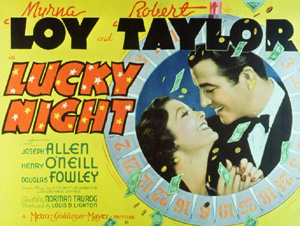
Lucky Night (1939) is a comedy movie from MGM starring Robert Taylor and Myrna Loy, directed by Norman Taurog.
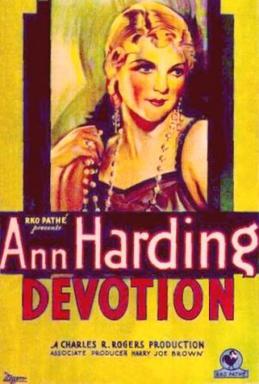
Devotion is a 1931 American pre-Code romantic drama film starring Ann Harding and Leslie Howard based on the 1930 Pamela Wynne novel A Little Flat in the Temple. Its plot involves a woman who disguises herself and gains employment in the home of the man she loves.

Dangerous Number is a 1937 American comedy film directed by Richard Thorpe and written by Carey Wilson. The film stars Robert Young, Ann Sothern, Reginald Owen, and Cora Witherspoon, and features Dean Jagger. The film was released on January 22, 1937, by Metro-Goldwyn-Mayer.

One More Tomorrow is a 1946 American drama film directed by Peter Godfrey and written by Charles Hoffman and Catherine Turney from the play The Animal Kingdom by Philip Barry. The film, starring Ann Sheridan, Dennis Morgan, Jack Carson, Alexis Smith, Jane Wyman and Reginald Gardiner. It was released by Warner Bros. on June 1, 1946. A pre-code 1932 film, The Animal Kingdom, is also based on the play.





















